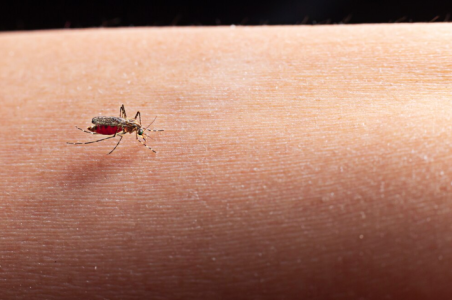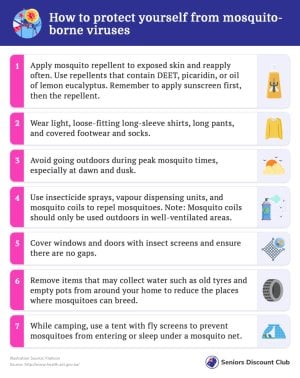Urgent warning: Protect yourself from the dangerous mosquito virus spreading in this state
By
VanessaC
- Replies 3
As the summer season continues to bring warm, wet weather, and many of us are enjoying more time outdoors, the mosquito population is also reportedly thriving across New South Wales.
This has led to a resurgence of a dangerous mosquito-borne virus, Japanese encephalitis (JE), which was detected in the Menindee region.
Health authorities are urging residents to take precautions to protect themselves from mosquito bites and the potential diseases they can carry.
The detection of the JE virus was made during routine testing in late December.
The virus was found in a sentinel chicken, part of a program designed to provide early warning of the presence of serious mosquito-borne diseases.
The Acting Director of Environmental Health at NSW Health, Paul Byleveld, emphasised the importance of reducing the risk of mosquito bites, particularly in light of this recent detection.
Mosquitoes in NSW are known to carry Murray Valley encephalitis virus and the Kunjin, Ross River, and Barmah Forest viruses.
The symptoms of the JE virus range from tiredness, rash, headache, and sore and swollen joints to rare and severe symptoms such as seizures and loss of consciousness.
High-risk residents are eligible for a free vaccine to protect against JE infection.
Eligibility can be checked at the Japanese encephalitis vaccination website.
Below are the local government areas (LGAs) of high Japanese encephalitis virus concern:

However, vaccination is only one part of the solution. It's crucial to take additional steps to reduce the risk of mosquito bites.
Here are some practical tips to protect yourself from mosquito-bourne viruses:
By following these tips, you can protect yourself and your family from these potentially serious diseases.

Have you or someone you know been affected by a mosquito-borne disease? Share your experiences and tips for protection in the comments below.
This has led to a resurgence of a dangerous mosquito-borne virus, Japanese encephalitis (JE), which was detected in the Menindee region.
Health authorities are urging residents to take precautions to protect themselves from mosquito bites and the potential diseases they can carry.
The detection of the JE virus was made during routine testing in late December.
The virus was found in a sentinel chicken, part of a program designed to provide early warning of the presence of serious mosquito-borne diseases.
The Acting Director of Environmental Health at NSW Health, Paul Byleveld, emphasised the importance of reducing the risk of mosquito bites, particularly in light of this recent detection.
Mosquitoes in NSW are known to carry Murray Valley encephalitis virus and the Kunjin, Ross River, and Barmah Forest viruses.
The symptoms of the JE virus range from tiredness, rash, headache, and sore and swollen joints to rare and severe symptoms such as seizures and loss of consciousness.
High-risk residents are eligible for a free vaccine to protect against JE infection.
Eligibility can be checked at the Japanese encephalitis vaccination website.
Below are the local government areas (LGAs) of high Japanese encephalitis virus concern:
However, vaccination is only one part of the solution. It's crucial to take additional steps to reduce the risk of mosquito bites.
Here are some practical tips to protect yourself from mosquito-bourne viruses:
By following these tips, you can protect yourself and your family from these potentially serious diseases.
Key Takeaways
- Health authorities in NSW warned residents to protect themselves against mosquito bites following the detection of the Japanese encephalitis (JE) virus in far-west NSW.
- A positive result for JE was found during routine testing of a sentinel chicken in Menindee, and the mosquito population is currently thriving due to wet, warm weather conditions.
- NSW residents at high risk of JE are eligible for a free vaccine, and people are encouraged to check their eligibility and get vaccinated against the infection.
- Practical steps to reduce the risk of acquiring a mosquito-borne virus include applying repellent, wearing protective clothing, avoiding peak mosquito times, using insecticide products, securing homes against mosquitoes, and removing water-collecting items to limit breeding sites.









